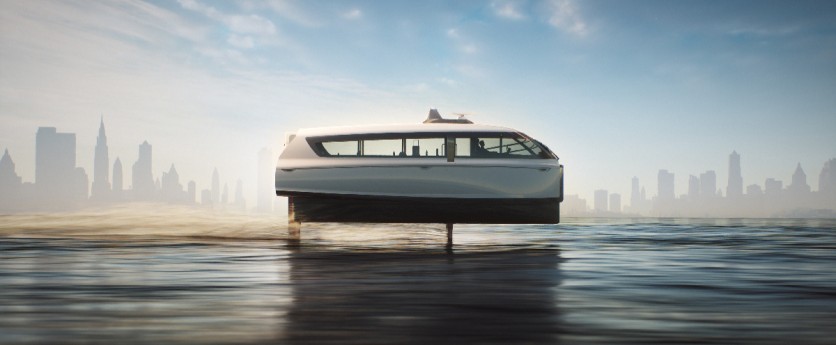Swedish-based Candela knows a thing or two about impeccable boat design. In Febuaray 2022, the firm first unveiled its prototype flying boat, the C-8, which leverages state-of-the-art hydrofoil technology that lifts the vessel off the surface of the water when hitting 16 knots of speed. The boat's ingenuity led to immediate sales, outselling combustion engine vessels in mere presales.
The C-8 wasn't the only thing up Candela's sleeve, as it also has for quite some time aimed to deliver similar designs but for larger transport vehicles. These so-called P-30 ferries (now titles P-12) are marketed as "the world's fastest electric passenger vehicle," according to the product's webpage. The P-12 is now situated in the spotlight as EQT Ventures and several other venture capital firms pump $20 million (SEK 210 million) into the Swedish tech company to enhance waterborne transportational methods.

The P-12 uses so-called "underwater wings," or more accurately computer-guided hydrofoils, that allow it not only to skim across the waves at over 27 knots but also limit its electrical output by, as Candela itself says, "80% less energy than traditional vessels." That's not only great specs for the shuttle itself, but enviromentally friendly, as well, given that the P-12 will emit 97.5% lower CO2 compared to diesel counterparts.
"This new investment will unlock the potential of underutilized waterways for climate-friendly, high-speed commuting," says Candela CEO and founder Gustav Hasselskog. "The P-12 Shuttle will in many cases be faster and cheaper than land transport like bus lines, and it will be profitable for operations from day one."
Stockholm, Candela's base of operations in Sweden, is where the P-12 will first be utilized in limiting current travel times via cars and diesel boats by 30 minutes from central Stockholm to Ekerö. The P-12's zero wake potential allows it to be exempted from Stockholm's current 12-knot speed limit, thus equalling for more departures and less-stressed travelers.

Candela is already eye-balling a potential $30 billion addressable market for the P-12, due in large part to the firm's previous entires, like the C-8 daycruiser, in tandem with its extensively tested technology.
Since 2019, the firm has been developing and enhancing the Candela Flight controller, the onboard computer that controls the hydrofoils and stabilizes the vessel mid-flight. The firm has long promoted the comfort of its vessels, highlighting a 90% potential reduction in g-forces experienced by passengers.
The P-12 is slated to hit waterways (and airways) come summer 2023. Candela has not yet given an official launch date, but is leveraging the newfound funding to help speed up the production of its newest shuttle at Candela's Stockholm-based factory.
Adds Hasselskog, "Waterborne transport is the next frontier set for sustainable disruption, and it's happening now."
ⓒ 2025 TECHTIMES.com All rights reserved. Do not reproduce without permission.




